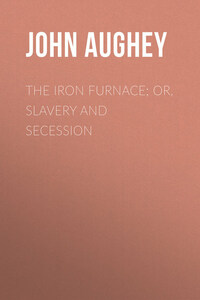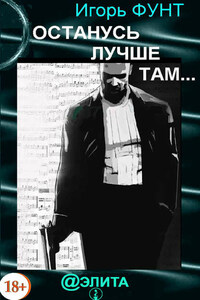A celebrated author thus writes: “Posterity is under no obligations to a man who is not a parent, who has never planted a tree, built a house, nor written a book.” Having fulfilled all these requisites to insure the remembrance of posterity, it remains to be seen whether the author’s name shall escape oblivion.
It may be that a few years will obliterate the name affixed to this Preface from the memory of man. This thought is the cause of no concern. I shall have accomplished my purpose if I can in some degree be humbly instrumental in serving my country and my generation, by promoting the well-being of my fellow-men, and advancing the declarative glory of Almighty God.
This work was written while suffering intensely from maladies induced by the rigours of the Iron Furnace of Secession, whose sevenfold heat is reserved for the loyal citizens of the South. Let this fact be a palliation for whatever imperfections the reader may meet with in its perusal.
There are many loyal men in the southern States, who to avoid martyrdom, conceal their opinions. They are to be pitied – not severely censured. All those southern ministers and professors of religion who were eminent for piety, opposed secession till the States passed the secession ordinance. They then advocated reconstruction as long as it comported with their safety. They then, in the face of danger and death, became quiescent – not acquiescent, by any means – and they now “bide their time,” in prayerful trust that God will, in his own good time, subvert rebellion, and overthrow anarchy, by a restoration of the supremacy of constitutional law. By these, and their name is legion, my book will be warmly approved. My fellow-prisoners in the dungeon at Tupelo, who may have survived its horrors, and my fellow-sufferers in the Union cause throughout the South, will read in my narrative a transcript of their own sufferings. The loyal citizens of the whole country will be interested in learning the views of one who has been conversant with the rise and progress of secession, from its incipiency to its culmination in rebellion and treason. It will also doubtless be of general interest to learn something of the workings of the “peculiar institution,” and the various phases which it assumes in different sections of the slave States.
Compelled to leave Dixie in haste, I had no time to collect materials for my work. I was therefore under the necessity of writing without those aids which would have secured greater accuracy. I have done the best that I could under the circumstances; and any errors that may have crept into my statements of facts, or reports of addresses, will be cheerfully rectified as soon as ascertained.
That I might not compromise the safety of my Union friends who rendered me assistance, and who are still within the rebel lines, I was compelled to omit their names, and for the same reason to describe rather indefinitely some localities, especially the portions of Ittawamba, Chickasaw, Pontotoc, Tippah, and Tishomingo counties, through which I travelled while escaping to the Federal lines. This I hope to be able to correct in future editions.
Narratives require a liberal use of the first personal pronoun, which I would have gladly avoided, had it been possible without tedious circumlocution, as its frequent repetition has the appearance of egotism.
I return sincere thanks to my fellow-prisoners who imperilled their own lives to save mine, and also to those Mississippi Unionists who so generously aided a panting fugitive on his way from chains and death to life and liberty. My thanks are also due to Rev. William P. Breed, for assistance in preparing my work for the press.
I am also under obligations to Rev. Francis J. Collier, of Philadelphia; to Rev. A. D. Smith, D. D., and Rev. J. R. W. Sloane, of New York, and to Rev. F. B. Wheeler, of Poughkeepsie, New York.
May the Triune God bless our country, and preserve its integrity!
JOHN HILL AUGHEY.
February 1, 1863.








